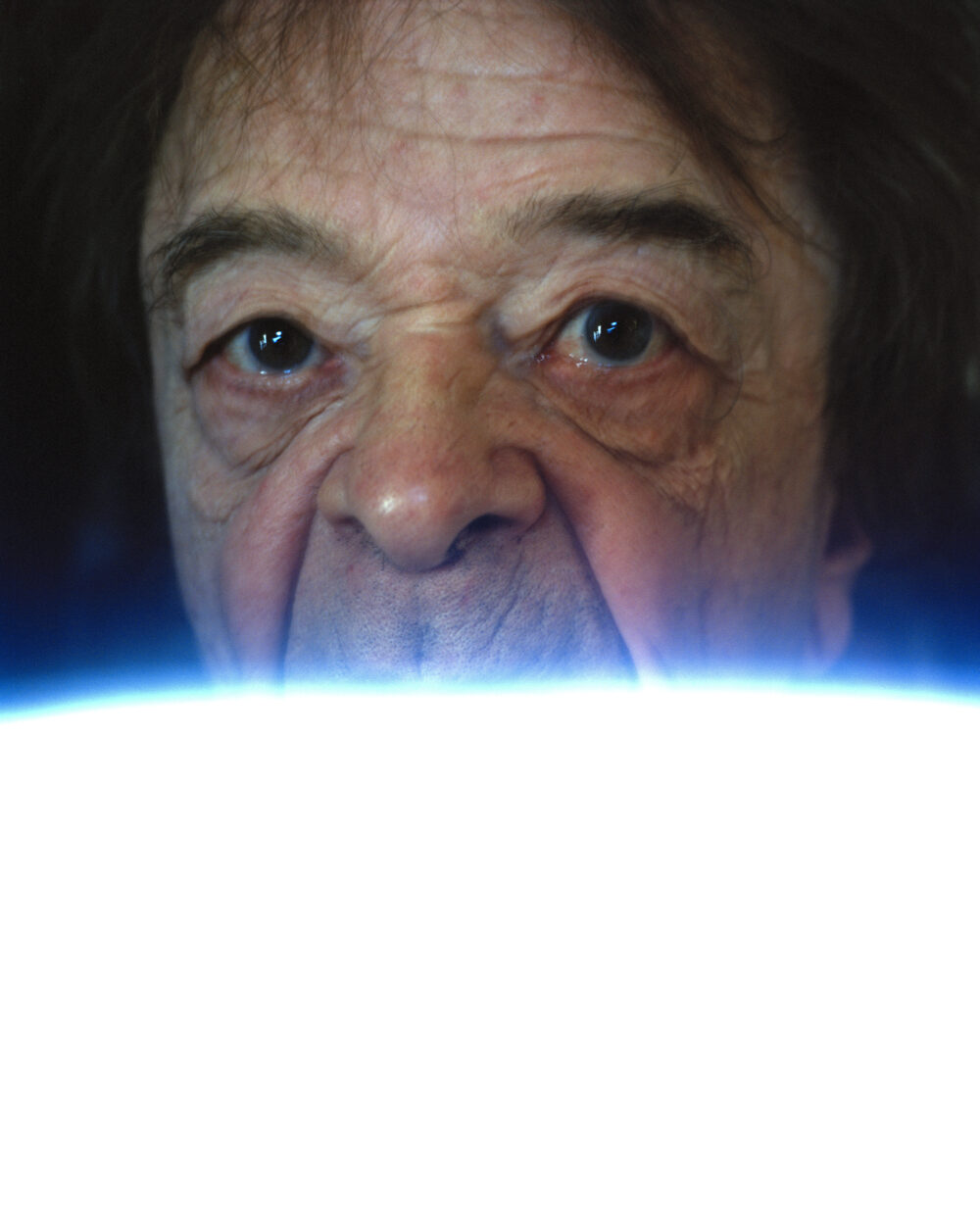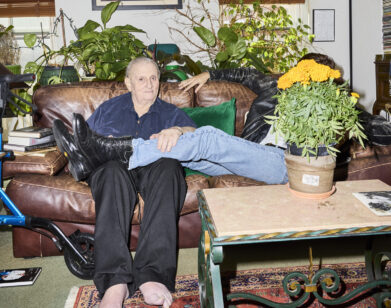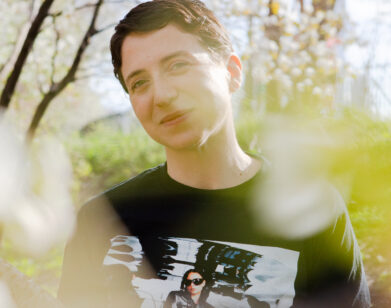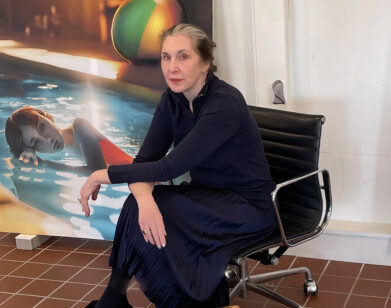HELLRAISER
Gary Indiana and Chris Kraus on Autofiction and Art World Fuckery
Literary legend and cultural hellraiser Gary Indiana is staying in Los Angeles when he gets on the line with fellow writer and Semiotext(e) publisher Chris Kraus. Hot on the heels of the recent reprint of his sleazy-genius book Rent Boy, and a new edition of his sharp-toothed comic social novel Do Everything in the Dark, the old friends got together virtually to talk about what you can and can’t say out loud in the current climate, art-world fuckery, and those gone but not forgotten.
———
SATURDAY 4 PM FEB. 11, 2023 NYC
GARY INDIANA: Hi, Chris.
CHRIS KRAUS: Gary, good morning. How are you?
INDIANA: I’m okay. Can you see me okay?
KRAUS: I can see perfectly. That was nice last night at Veronica’s, wasn’t it?
INDIANA: Yeah, it was.
KRAUS: I’m really glad we’re getting to have this conversation because I have a number of things I want to talk about. The first is the timing of republishing your book, Do Everything in the Dark. It originally came out in 2003, and you had just finished your crime trilogy [Resentment: A Comedy, Three Month Fever: The Andrew Cunanan Story, and Depraved Indifference]. Those three books were so heavily researched and exhaustive, and I wonder if, at the time that you wrote this book, you felt an impulse to get back to something that was closer to your actual life and your circle of friends.
INDIANA: I think so. I certainly didn’t want to do any more research, because that was a marathon. But also, I felt a real shift in the general tenor of things, in my immediate world and also the world at large. I felt like you get a sense in that book that history is sort of sweeping us along in a bad direction, and something has come to an end. Maybe whatever mingy sense of security we had about the world, which was never particularly secure, was never quite as strange as this period just before 9/11.
KRAUS: Do you think everyone in your circle felt that?
INDIANA: Well, we’d just gone through this strange period after the AIDS epidemic, which had wiped out a lot of the people we knew. And also in the world at large, with the Soviet Union collapsing. There was a sense that the things we couldn’t control were controlling us, and that whatever autonomy we felt about our lives, it was really not as great as we thought. I was also interested in the ways in which people in various classes, particularly the cultural world, were connected or disconnected.
KRAUS: Everyone is traveling in the book, flung all over the world, and yet this group of people still maintains an intense connection. It hasn’t fallen apart.
INDIANA: It was striking, to me, that suddenly you had friends that were just scattered. That was the thing also, that something that had been more locally coherent as a milieu was suddenly fragmenting into a more atomized geography. Partly because of computers.
KRAUS: And partly because of some people’s success. In the art world, they started to have more international careers.
INDIANA: People buying houses in other countries and hopping all over the place to exhibitions, et cetera. Although it’s nothing compared to now.
KRAUS: You captured something of the same thing in Depraved Indifference. It was the beginning of the indifference of the entire culture. One of my favorite scenes in that book is the robocall. [Laughs] Allow us to waste your time while you’re on endless hold with the global call center.
INDIANA: Of course, the con artist today is taken for granted as a model of success. Anybody can be a con artist now and not only get away with it, but be celebrated for it.
KRAUS: Indeed. Could you talk a little about your interest in how things fall apart? I think about it, too. The Marxist historian Christopher Hill writes about this in The Experience of Defeat, and there’s the anthropology classic When Prophecy Fails [by Henry Riecken, Leon Festinger, and Stanley Schachter], where the millennial cult members wake up the next day and the world is still there. It’s like, where do we go now? This crash or exhaustion seems like the inevitable conclusion to just about every artistic moment. Do you agree?
INDIANA: I do. I think it’s also politically true. I’m a great reader of Victor Serge, and he writes about how that related to the Spanish Civil War. How those who had been with and for the revolution ended up being hunted down as enemies of the state. As a student of cultural themes, I think things cohere for a while when people feel a certain solidarity with one another and a certain—I don’t want to say common enemy, but a resistance to something that’s established. Then some of those people get co-opted into it and some get left out, and things fall apart. I noticed that in the ’80s, some people started making a great deal of money in the art world while others were just getting by. And maybe there was a residual feeling of loyalty that these people should be supported. Like, “Oh, now you’re donating half a million dollars to move a rock from one place to another for some institution, but you can’t support your friends.” That sort of thing.
KRAUS: There’s always this great winnowing that goes on within the art world. The really sad thing is who gets to remain and who does not.
INDIANA: Exactly. Because you find, among equally talented people, that luck and connections play such a vital role in who gets to be known and who doesn’t. Some people just aren’t wired to be social and shrewd about certain connections. It’s not a question of who’s right or wrong. It’s just a question of how you’re put together.
KRAUS: Age also obviously has something to do with it. Do you think you have to be young to even buy into the idea of a scene in the first place?
INDIANA: When you’re young, you have tremendous energy. I know I did. I had enormous energy to throw away. I did a film series. I did a reading series. I arranged all these things, and it wasn’t with the idea that this is going to be in the New York Times, because in those days, that just didn’t happen. Everything I found in New York, I found myself.
KRAUS: Right. If 50 people you respected thought highly of something, that was enough.
INDIANA: Also, since we didn’t have phones, you couldn’t record everything. 90 percent of what I did in the ’80s was never documented. There was this charm of, like, “Now you see it. Now you don’t.” If you were there, you were there. If you weren’t, you weren’t. Some people did find the means or had a particular interest in documenting things. I’m not really an archivist of my own stuff.
KRAUS: Neither of us are.
INDIANA: You just assume it’s accumulating somewhere, and quite often it’s not.
KRAUS: And yet for some people, the documentation comes first. Especially now. Increasingly now.
INDIANA: Years ago it was proposed that I hire some PR firm to promote my book, because my publisher wasn’t going to put any real juice into it. But when I went with my agent to take a meeting, they said, “We need you to do something like this,” and handed me several stapled pages by a writer, who I won’t name, who had described herself. She had basically listed everything that she had ever done, including being a cheerleader in high school. It was this narrative of herself that was beyond anything I could conceive of putting down on a piece of paper about myself. I just couldn’t do it, but some people are prepared to do that.
KRAUS: In the novel you say, and you exaggerate this brilliantly, that it isn’t about success and failure, but that friends are eventually divided into masters and servants. There’s a character who becomes the celebrity photographer of the demi-monde, and her old friend, who’s now her part-time employee. Were your friends bothered by what you wrote at the time?
INDIANA: Actually the people who might have been enraged by it were by that time people that I had no more contact with. Most of these things were observed from a distance or from what other people had told me. I always cultivated friendships with the lesser partner in these relationships, always the one that had to cook the meals and clean up. Those were the people that I considered my friends, not the stars. Then, they would tell me stories about their lives, and I just thought, “Oh my god, you’re more interesting to me than that person that you’re a slave to.”
KRAUS: The character of Edith has a more interesting life than Chrissie with her big career
INDIANA: Edith’s sort of like Mother Courage. She’s an itinerant. She disappears for long periods, and then you find out that she was singing with some very prestigious group in New Orleans for a while, and then she was harvesting oysters on Cape Cod. She has, to me, a real life.
KRAUS: She has an artistic life, as opposed to the artist who’s become a career machine.
INDIANA: And then the gay couple, one’s a very esteemed painter, and the other one’s a pornographer. In that duo, the pornographer was the one who interested me.
KRAUS: His situation is so poignant. His work was no longer important. It was pushed to the margins. It’s a terrible painter who rules in the ’80s.
INDIANA: I wasn’t trying to condemn or excoriate anybody. It is just the way things work. I find that now, if you just describe things the way they are, people think that you are attacking them and wishing them ill, which was never the intention.
KRAUS: Your book is so much more a satire than a roman à clef. At the same time, I recognize two-thirds of the people.
INDIANA: That was my lack of artistry or, my lack of imagination.
KRAUS: You can mix it up, but you can’t make it up.
INDIANA: I invented most of the scenes that are, let’s say over the top, like the intervention. When they do the intervention on the guy, I wasn’t there. I don’t know anything about it. I just heard about it in a very oblique way and made it up, because I could imagine the insane dynamic of these people all saying, “You are loved, and you are valued,” and at the same time, thinking, “How do we get rid of this guy?”
KRAUS: Was there any blowback from people who thought they were being unfairly depicted? Or maybe they just stopped talking to you.
INDIANA: For the most part, I had stopped talking to them a long time previous to this, or they just were not in my orbit anymore. But as I said, I had befriended the people that were on the losing end of a lot of this stuff, and so they remain my friends, and maybe if they read the book, felt a bit vindicated.
KRAUS: It’s amazing, reading some of the mid-century writers that I know we both like—Mary McCarthy, Randall Jarrell, Chester Himes—how much they got away with. Some of their books say the most terrible things about very recognizable people. And that’s half the fun of reading it. It seems to me like the ethos has changed. You can be harshly criticized for saying anything about anyone in a book. Everyone loves “autofiction” until it gets too specific or mean.
INDIANA: I think about the novella that Mary McCarthy did, The Oasis. Everybody knew who everybody was in that novella. It was considered really harsh, satirically very pointed, but if you read it today, you’d have absolutely no idea who those people were. And yet it’s still a really good work of art.
KRAUS: Because the types remain the types.
INDIANA: Absolutely. If I thought about it at all, I thought that the people in the book were containers for certain kinds of pathology and characterological flaws. But it is a satire. It’s not meant to be a full portrait of anybody’s inner self.
KRAUS: I’ve always thought the job of fiction is to do just that, but people today are so squeamish about reality.
INDIANA: Alexander Kluge told me many years ago something that has always stuck in my head. People hate reality, and they will do anything to defend themselves against it. But the reality we are in right now is so daunting. People feel so vulnerable and powerless, that maybe that kind of honesty has become intolerable, because they need to defend themselves against everything now.
KRAUS: It’s true and it’s sad, which brings me to the sadness of the book. Unlike most satire, there’s a very manifest affection and love at the bottom of it. The narrator regrets, several times, how he can never save anyone. It’s almost like the satire is an act of catharsis. It’s like you have to move through all the bad stuff— the irritation, the resentment, the pretense that gathers in daily life— to get to the real feeling that you have for someone.
INDIANA: We spoke recently about [writer] Heather Lewis who was the model for the character of Caroline. I loved her very much, from the first time I met her. She was so amazingly intelligent and human, in a way that moved me throughout the whole time I knew her. The trajectory of that character in the book is that I didn’t want Heather to die, so I wanted to bring her back to life. [Lewis committed suicide in 2002]
KRAUS: You had a kind of telekinesis with Heather.
INDIANA: I wanted to do what Kluge talks about: if you could go back and undo these things in history so that the outcome was different. That’s how I was thinking about the character.
KRAUS: You still spend a lot of time in New York, which has changed and changed again over the decades. How do you see the city now?
INDIANA: I try not to see it as much as possible. I stay in my apartment to a really pathological extent. Everybody I know, at this point, has cancer or something else. I don’t have a social network in New York anymore. It’s almost like my friends in New York are as scattered as the people in my book, even though they’re still in New York. There’s something different going on there that has to do with new things, like social media. That’s another thing I thought of, in connection with blowback, is that today, if you went out on a limb, to the extent that maybe I had at that time, you would be killed on social media. I don’t participate in that at all. I’m not on any of those things, but I think people are very fearful of getting whacked, of getting—I don’t want to say getting canceled, because I don’t understand how you can cancel a person—but that’s what it’s called when people gang up on you on social media.
KRAUS: Yes, it’s the worst kind of elementary school bullying that, as artists, we couldn’t wait to leave behind in our little shithole towns, right?
INDIANA: I’ve seen it done to you. I’ve seen it done to Laura Owens. I’ve seen it done to a lot of people that we really care about, because somebody thought, “Oh, that’s a way that I can be important,” is by putting down this person for something they know nothing about.
KRAUS: You’re here in L.A. right now, and you’ve been spending a lot of time here in the past few years. Do you like it here? Do you see it as a kind of reprieve from New York?
INDIANA: I’ve always preferred to be here, to be honest. I left because of a car accident in 1978, went to New York, and all this stuff happened. But for most of the ’80s and ’90s, I maintained some kind of place here, either an apartment, or I used to live at the Highland Gardens intermittently. I have an apartment in Koreatown, but there was a fire, so now I can’t inhabit that apartment. My stuff is still there.
KRAUS: But you find it very kind of pleasant and easy to be here, right? Relatively.
INDIANA: I find there is still somewhat of a community here. It’s frayed a bit because of the pandemic. It had a lot of bad results with restaurants and places that we frequented closing and never reopening. But I still feel more connected to people here somehow.
KRAUS: Which artists do you like and admire now?
INDIANA: I love [French writer] Patrick Modiano very much. He’s always written the same book over and over, but they’re all different somehow. I read you, if you publish something.
KRAUS: Thank you.
INDIANA: [French writer] Constance Debré was a great discovery for me. I met her the year before last and completely forgot. I don’t read that much contemporary fiction. I don’t know why, but it just doesn’t interest me that much. I wish it did. But I like crime novels a lot.
KRAUS: I’ve been watching Chihuahua videos on YouTube, so don’t feel bad. Well, thanks, Gary.
INDIANA: I’ll see you tomorrow, Chris.
———
Photography Assistant: Niko Devera







